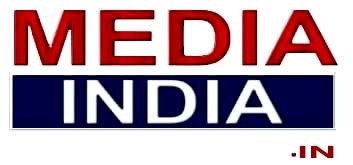There are many problems in the way of simultaneous elections to the Lok Sabha and state assemblies. The central government has said that thousands of crores will be spent on this, and to do this, at least five amendments will have to be made in the constitution.
एक राष्ट्र एक चुनाव: मोदी सरकार ने कहा खर्च होंगे हज़ारों करोड़, संविधान में करने होंगे कई संशोधन
If the concept of one country-one election is implemented, thousands of crores of rupees will be spent on it. That is, if elections to the Lok Sabha and state assemblies are held simultaneously in the country, not only thousands of crores of rupees will be spent, but for this at least five articles of the constitution will have to be changed. The Law Ministry of the Central Government has said this in the Parliament.
Union Law and Justice Minister Arjun Ram Meghwal said in Rajya Sabha on Thursday in response to BJP MP Kirori Lal Meena’s question that “there are five major obstacles in holding all the elections at once, the biggest issue being amendment of at least five articles of the Constitution”. To do.”
He pointed out that the government would have to amend Article 83 of the Constitution, which sets the duration of the Houses of Parliament, as would Article 85, which has the power to dissolve a House by the President. Similarly, there is Article 172 which deals with the duration of State Legislatures, Article 174 which deals with the dissolution of State Legislatures. Apart from this, there is Article 356 under which President’s rule can be imposed in a state.
Arjun Meghwal said that apart from this, the government would also need the consent of all political parties on this issue. He told that the federal structure of governance is prevalent in India, so the consent of all the state governments will also have to be taken on this issue.
The Law Minister said that for conducting elections on such a large scale across the country, additional arrangements would have to be made, including systems like EVMs and VVPATs, which would cost thousands of crores of rupees. He said, “Knowing that the life of these machines is only 15 years, if elections are held simultaneously, these machines will be used only three or four times, and then replacing them every 15 years will be very costly. would spend.”
The Law Ministry said that apart from all this, a large number of polling personnel and security personnel would also be required to conduct the elections simultaneously.
But, at the same time, the government said that if elections are held simultaneously, it would also result in huge savings, avoiding frequent changes on the administrative and law and order front. Apart from this, holding elections together will also save the expenditure on campaigning by political parties and candidates.
Arjun Ram Meghwal said that, “The Model Code of Conduct will be in force for a long time due to simultaneous elections to the Lok Sabha and Legislative Assemblies, due to which there will be delay in the implementation of programs of development and welfare.”
The Parliamentary Standing Committee on Personnel, Public Grievances, Law and Justice had examined the issue of simultaneous elections to the Lok Sabha and State Assemblies in consultation with various stakeholders including the Election Commission. The committee has given some recommendations in this regard in its 79th report. The matter has now been referred to the Law Commission for further examination to prepare a workable road map and framework.
The 21st Law Commission, headed by Justice BS Chauhan, had released its draft report on simultaneous elections in 2018, in which the commission had said that simultaneous elections cannot be held within the existing framework of the Constitution. The commission had said that holding simultaneous elections would save public money, reduce the burden on the administrative machinery and security forces, ensure timely implementation of government policies and ensure that the administrative machinery is engaged in development activities rather than campaigning. .
Based on this report, the current 22nd Law Commission, headed by retired Justice Rituraj Awasthi, former Chief Justice of the Karnataka High Court, had decided to revisit the six questions put forward by the 21st Law Commission in its draft report to national political parties, Will seek opinion of stakeholders including Election Commission which were raised by bureaucrats, academicians and experts.
Those six questions are:
1) Will holding simultaneous elections in any way tamper with the country’s democracy, basic structure of the Constitution or federal polity?
2) Suggestions made by various committees and commissions to deal with the situation of hung Parliament/Assembly, where no political party has majority to form the government, propose that the Prime Minister/Chief Minister be appointed or selected as such Can be done as the Speaker of the House/Assembly is elected. would it be possible? If so, would it be in consonance with and in conformity with the Tenth Schedule of the Constitution?
3) Whether the appointment of Prime Minister/Chief Minister is done by consensus among political parties/elected members?





